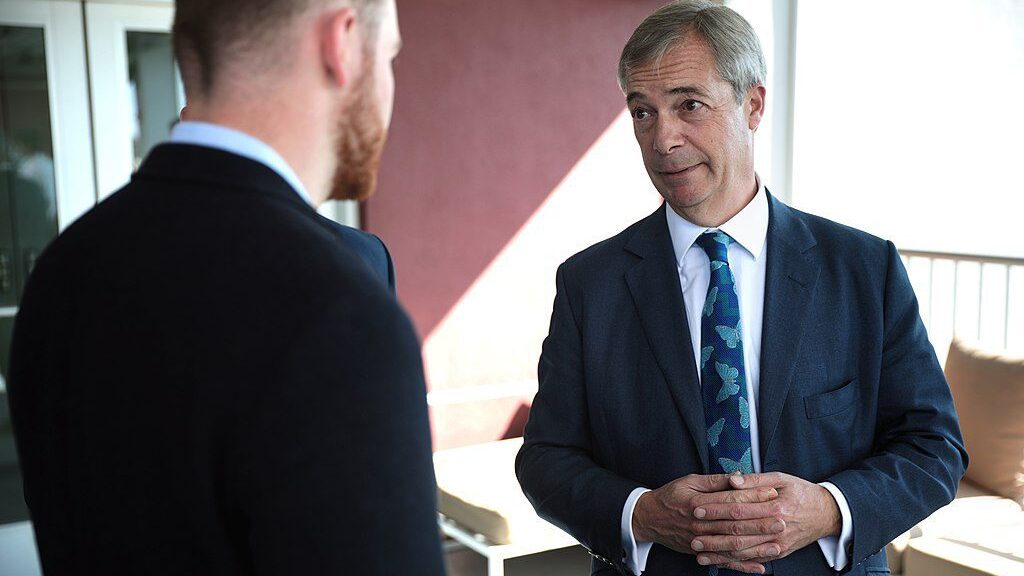
Nigel Farage
Photo: Gage Skidmore from Surprise, AZ, United States of America, CC BY-SA 2.0, via Wikimedia Commons
The British Conservatives have allowed a “trickle” of migrants crossing the Channel to the UK to become a “flood,” says Nigel Farage, who has challenged Rishi Sunak to a debate on the issue. Farage is particularly critical of the “disastrous social effects” brought about by a “large influx of young males coming [undeterred] from an entirely different culture, and certainly coming from a culture in which women are not even regarded as second-class citizens.”
The former UKIP leader’s request is, in part, a teasing response to the prime minister challenging Labour leader Sir Keir Starmer to no less than six televised debates. But more than this, it is an early step of what Farage describes as a six-year plan to make Reform UK—the retitled Brexit Party of which he is honorary president—“the voice of opposition.”
Talking on Tuesday, May 28th, in Dover, which he described as the “front line of the great national debate on immigration,” Farage made it clear that he isn’t worried about helping Labour by bashing the Conservatives since it is already a “forgone conclusion” that Labour will win the July 4th general election.
Reform UK is making an important announcement live from Dover, with Nigel Farage https://t.co/3G0Ksbawsm
— Nigel Farage (@Nigel_Farage) May 28, 2024
He also deviated from other commentators on the Right—such as author and journalist Peter Hitchens, who says that Starmer’s administration will be a “hard, targeted dogmatic Blairite government”—by insisting that there’s no “difference between the Labour and Conservative parties whatsoever.”
The policies are virtually identical … I can’t think there’s ever been less of a choice [between the two parties].
On migration in particular, Farage said that “neither side has any credible policy at all,” and asked: “How could it get worse?”
The objective, then, is not necessarily to perform particularly well in this—for Farage, uncontested—election (though that would be a bonus), but rather to build “a base from which we [Reform, can] go on and launch a serious assault at the next election,” expected in 2028-29.
Farage added that the Tories are so split and will be beaten at this year’s election so badly that they will enter the next Parliamentary term “in opposition, but they won’t be the opposition.” He hopes that while Labour proves “they haven’t got a policy” on the all-important migration issue, Reform can slowly establish itself as Britain’s second-largest political party.
The campaigner was also (expectedly) asked whether he was a “chicken” for choosing not to stand in the upcoming summer election and instead focus on helping Donald Trump get elected in the U.S.—a move which has prompted some right-leaning UK commentators to question Farage’s patriotic credentials. Farage responded that he is a patriot, but that he is also a “realist.” He stressed that while the UK election matters, “it’s over already [unlike in America], such is the collapse of support for the Conservatives.”
But Farage also made clear that once this heavy year of elections is over, he will be back to leave his final—and, he hopes, lasting—political mark in the UK.
